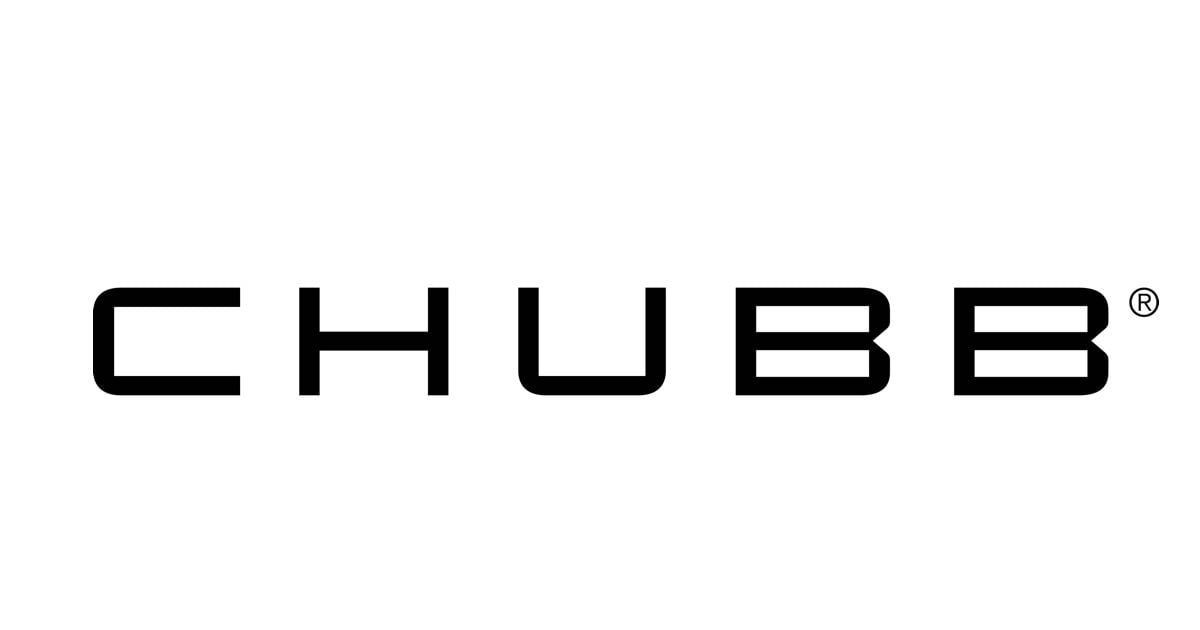Key takeaways
Chubb and USAA received the highest ratings in our analysis of home insurers in Hawaii.
State Farm is the best cheap insurer in Hawaii, with a star rating of 4.7 and an average annual premium of $505.
Chubb and USAA are the best home insurance companies in Hawaii, according to our analysis.
To help you find the best home insurance in Hawaii, we gathered and analyzed data from insurance companies across the state. These are the insurers that earned 4.5 stars or more.
Rates are based on a sample homeowner with no recent claims, $300,000 of dwelling coverage, $300,000 of liability coverage and a $1,000 deductible.
Company | NerdWallet star rating | Average annual rate |
|---|---|---|
Not available | ||
Not available | ||
$505 | ||
$660 | ||
USAA* | Not available | |
*USAA membership is open only to active military, veterans, some federal employees and their families. | ||
» MORE: The best homeowners insurance
Get home insurance quotes in minutes
Answer a few questions to see custom quotes and find the right policy for you.The best home insurance companies in Hawaii
Below are more details about the best homeowners insurance companies in Hawaii.
Note: Some insurance companies included in this article may have made changes in their underwriting practices and no longer issue new policies in your state.

Chubb
- Far fewer consumer complaints than expected for a company of its size.
- Standard coverage includes features that many companies offer only as extras.
- Perks to help you protect your home.
- Most consumers can't get a quote online and will instead need to contact a local agent.
Chubb caters to affluent homeowners, offering coverage that often costs extra from other insurers. For example, the company’s policies include extended replacement cost coverage in case it costs more than your dwelling limit to rebuild after a disaster. Chubb’s standard policies also cover water damage from backed-up sewers and drains.
Policyholders may be eligible for the company’s HomeScan service, which uses infrared cameras to look for problems behind the walls of your home.
» READ MORE: Chubb homeowners insurance review

Cincinnati Insurance
- Various coverage options.
- Far fewer complaints than expected for a company of its size.
- Coverage available for higher-value homes.
- No online quotes.
- Very little information on website.
If you want to support companies that value sustainability, consider Cincinnati Insurance. In recent years, the insurer has cut fossil fuel emissions from both its facilities and company vehicles. When you buy Cincinnati home insurance, you may be able to add a “green upgrade” endorsement, which lets you use eco-friendly materials to repair or rebuild your home after a claim.
The company offers several other options, including comprehensive coverage for high-value homes. You may be able to add coverage for things like identity theft, personal cyber attacks or certain types of water damage.
» READ MORE: Cincinnati homeowners insurance review
State Farm
- User-friendly website.
- Agents offer personalized service.
- Policies generally include extra coverage for your home’s structure.
- Below average for claim satisfaction in a recent J.D. Power study.
As America’s largest home insurer, State Farm stands out for policies that generally include extra dwelling coverage in case it costs more than expected to rebuild your home.
State Farm also offers a long list of coverage options. You may be able to add coverage for things like identity theft and water damage from backed-up drains. Another option may be to add an inflation guard rider to your policy. This automatically increases your policy limits to keep up with inflation.
State Farm offers a free Ting smart plug to home insurance policyholders as a perk. This device monitors your home’s electrical network to help prevent fires.
» READ MORE: State Farm homeowners insurance review
Allstate
- Lots of discounts to help you save.
- Home-sharing coverage available.
- Many ways to customize your coverage.
- Ranked below average for consumer satisfaction in recent J.D. Power studies.
Allstate offers lots of ways to customize your policy, including replacement cost coverage for your personal property and coverage for water damage caused by backed-up drains. Other options may include home-sharing coverage and reimbursement for replacing damaged items with energy-efficient versions.
You may also be able to upgrade your policy with the Enhanced Package. One benefit of this package is Deductible Rewards, which takes $100 off your deductible when you sign up, plus an additional $100 off for each year you go without filing a claim. If you do file a claim, your rates won’t go up.
» READ MORE: Allstate homeowners insurance review

USAA
- Policies include standard coverage that often costs extra elsewhere.
- Fewer customer complaints to state regulators than expected for a company of its size.
- Perks for military homeowners.
- Available only to active military members, veterans, some federal employees and their families.
USAA sells homeowners insurance to active military members, veterans, some federal employees and their families. If that’s you, you may want to consider USAA. The company offers some perks that are specific to members of the military, like deductible-free coverage for military uniforms and equipment.
USAA homeowners insurance has certain features that many insurers charge extra for. For example, USAA covers your personal belongings on a replacement cost basis. That means you’ll get enough money to buy brand-new replacements for damaged items. Many companies pay only what your items are worth at the time of the claim.
» READ MORE: USAA homeowners insurance review
How much does homeowners insurance cost in Hawaii?
The average annual cost of home insurance in Hawaii is $610. That’s 71% less than the national average of $2,110.
In most states, including Hawaii, many insurers use your credit-based insurance score to help set rates. Your insurance score is similar but not identical to your traditional credit score.
In Hawaii, those with poor credit pay an average of $660 per year for homeowners insurance, according to NerdWallet’s rate analysis. That’s 8% more than those with good credit.
Average cost of homeowners insurance in Hawaii by city
Average Hawaii homeowners insurance rates tend to be fairly consistent across the state. For instance, the average cost of home insurance in Honolulu is $585 per year, while homeowners in Hilo pay $610 per year, on average.
City | Average annual rate | Average monthly rate |
|---|---|---|
Aiea | $585 | $49 |
Ewa Beach | $585 | $49 |
Haiku | $610 | $51 |
Hilo | $610 | $51 |
Honolulu | $585 | $49 |
Kahului | $610 | $51 |
Kailua | $585 | $49 |
Kailua Kona | $610 | $51 |
Kamuela | $610 | $51 |
Kaneohe | $585 | $49 |
Kapaa | $610 | $51 |
Kapolei | $585 | $49 |
Keaau | $610 | $51 |
Kihei | $610 | $51 |
Lahaina | $610 | $51 |
Lihue | $610 | $51 |
Makawao | $610 | $51 |
Mililani | $585 | $49 |
Pahoa | $610 | $51 |
Pearl City | $585 | $49 |
Wahiawa | $585 | $49 |
Waianae | $585 | $49 |
Wailuku | $610 | $51 |
Waimanalo | $585 | $49 |
Waipahu | $585 | $49 |
The cheapest home insurance in Hawaii
Here are the insurers we found with average annual rates up to the Hawaii average of $610.
Company | NerdWallet star rating | Average annual rate |
|---|---|---|
DB Insurance | Not rated | $330 |
RLI | Not rated | $460 |
$505 |
Common risks for Hawaii homeowners
Hawaii’s unique geology brings special considerations for those who own homes there. Here are a few of the more common risks, plus ways to make sure your home is covered against them.
Flooding
Flooding can seriously damage your home, and homeowners insurance typically won't cover it. You’ll need flood insurance for that. You can get flood insurance at any time, but be aware there’s often a 30-day waiting period before the coverage takes effect.
To check your flood risk, start by looking up your address on the Federal Emergency Management Agency's flood maps. However, FEMA’s maps don’t always capture all types of flood risk. You may want to check another source, like First Street, a private company that models climate hazards. Enter your address at the top of the page to see your home’s flood risk rating on a scale of 1 to 10.
Hurricanes
In Hawaii, homeowners with mortgages are typically required by their lenders to purchase supplemental hurricane insurance in addition to standard home insurance. Once a hurricane watch or warning is issued, hurricane insurance generally kicks in and remains in effect for 72 hours.
Coverage under hurricane insurance varies, so it’s important to read your policy carefully. In general, a hurricane policy will cover damage from wind but not flooding. To make sure your home has the most comprehensive coverage for hurricanes, you’ll need a separate flood insurance policy.
Because hurricane insurance is separate from your homeowners policy, it will have its own deductible, usually a percentage of your dwelling coverage. For example, if your home has $300,000 worth of dwelling coverage and a 5% hurricane deductible, you’ll be responsible for the first $15,000 of damage before your insurance will pay for anything.
Volcanic activity
Coverage for volcanic activity varies, so it’s important to review your homeowners insurance policy to understand what it covers. For instance, some damage caused by lava may be covered as fire damage.
When reviewing your policy, pay attention to your dwelling coverage limit. This is the amount the insurance company will pay to rebuild your house. Volcanic activity could destroy your home, so talk with your insurer to make sure you have enough coverage to rebuild if necessary.
Earthquakes
Standard homeowners insurance policies don't typically cover structural damage due to an earthquake. If you live in an area with higher risk, consider buying additional earthquake insurance.
Earthquake insurance often has a separate deductible, which can be around 5% to 25% of the dwelling coverage on your policy. For example, if you have a 20% deductible on $200,000 of coverage, you would need to pay a $40,000 deductible for earthquake damage before your insurance covers anything.
Hawaii insurance department
The Hawaii Department of Commerce and Consumer Affairs oversees the insurance industry for the state. Its website provides useful insurance information for consumers, including hurricane preparedness resources and information on lava flow insurance.
This department can help answer your questions about insurance in Hawaii by email at insurance@dcca.hawaii.gov or by phone at 808-586-2790. If you have an issue with your insurer, file a complaint with the department using its consumer complaint form.
How we rate homeowners insurance
NerdWallet’s star ratings reward companies for consumer-first features and practices. We evaluate factors such as consumer experience, coverage, discounts and financial strength.
In our research, we analyzed:
More than 270 million homeowners insurance rates.
More than 100 insurance companies.
Nearly 200 homeowner profiles.
View our complete homeowners insurance rating methodology.
Frequently asked questions
Homeowners insurance isn't required by Hawaii state law. However, your lender may require you to buy home insurance. For more information, read Is Homeowners Insurance Required?
There are several ways to save money on Hawaii home insurance:
Shop around to make sure you’re getting the best rate.
Choose a higher deductible. In case of any claims, you’ll pay more out of pocket, but your premiums will be lower.
Bundle your home and auto insurance for a lower overall rate. See the best home and auto insurance bundles.
Ask your insurer if you qualify for any home insurance discounts.
Star rating methodology
NerdWallet’s homeowners insurance ratings reward companies for customer-first features and practices. Ratings are based on weighted averages of scores in several categories, including financial strength, consumer complaints, coverage, discounts, claims process and website functionality. These ratings are a guide, but we encourage you to shop around and compare several insurance quotes to find the best rate for you. NerdWallet does not receive compensation for any reviews or star ratings.
Here’s how we weighted each category to come up with our list of the best home insurance companies:
Consumer experience (40%).
Financial strength (30%).
Coverage (25%).
Discounts (5%).
Read our full home insurance ratings methodology for more details.
Homeowners insurance rates methodology
NerdWallet calculated median rates for 40-year-old homeowners from various insurance companies in the 25 largest cities in each U.S. state by population. All rates are rounded to the nearest $5.
Sample homeowners were nonsmokers with good credit living in a single-family, two-story home built in 1984. They had a $1,000 deductible and the following coverage limits:
$300,000 in dwelling coverage.
$30,000 in other structures coverage.
$150,000 in personal property coverage.
$60,000 in loss of use coverage.
$300,000 in liability coverage.
$1,000 in medical payments coverage.
We made minor changes to the sample policy in cases where rates for the above coverage limits or deductibles weren’t available.
In states where credit is a rating factor, we changed the credit tier from “good” to “poor,” as reported to the insurer, to see rates for homeowners with poor credit.
These are sample rates generated through Quadrant Information Services. Your own rates will be different.
Complaint methodology
NerdWallet examined complaints received by state insurance regulators and reported to the National Association of Insurance Commissioners in 2022-2024. To assess how insurers compare with one another, the NAIC calculates a complaint index each year for each subsidiary, measuring its share of total complaints relative to its size, or share of total premiums in the industry. To evaluate a company’s complaint history, NerdWallet calculated a similar index for each insurer, weighted by market shares of each subsidiary, over the three-year period.
NerdWallet conducts its data analysis and reaches conclusions independently and without the endorsement of the NAIC. Ratios are determined separately for auto, home (including renters and condo) and life insurance.







